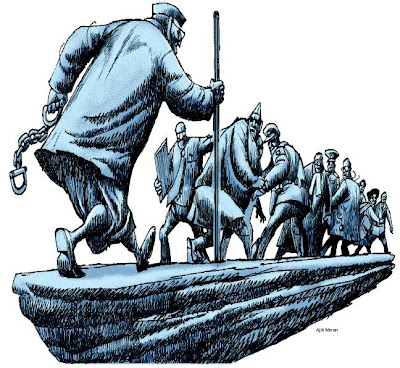His fast unto death became the rallying point for a nationwide movement and forced the government to form a joint committee to draft the Lokpal Bill. But few know that as a 23-year-old Army driver, Anna Hazare had contemplated suicide until reading a book on Swami Vivekananda changed his life.
That’s not all. The man who’s arguably India’s most famous Gandhian today also narrowly escaped death during the 1965 Indo-Pakistan war.
‘‘As a young man, I saw people craving for material goods. Mera bhi mera, tera bhi mera What’s mine is mine, what’s yours is mine too)—was their motto. When you die, you take nothing with you. Yet everybody hankered for more. I kept questioning myself: why do we behave like this? What is the purpose of life?’’ he recalled.
But Hazare found no easy answers. ‘‘One night I sat down and even contemplated suicide. There was no reason for pondering over such a move except that I wasn’t able to figure out the meaning of life,’’ he said.
Call it fate—he was attracted to a Swami Vivekananda poster at Delhi railway station. ‘‘I bought a book on his ideas. After reading it, realized that serving the poor means serving god. After that, jeewan ka dhaga haath mein aa gaya (I got a hold on life),’’ said Hazare.
It is well known that Vivekananda had coined the expression, ‘Daridra Narayana, (God lives in the poor)’’. The 19th century social reformer had urged men and women to serve the poor if they wanted to serve God.
As a teenager, Hazare sold flowers at Dadar railway station. He slaved and saved enough money to become the owner of two shops. But he still wasn’t satisfied and joined the Army in 1963.
During the 1965 Indo-Pak war, his vehicle came under heavy aerial fire. The lorry was riddled with bullets. Everyone else in the vehicle died. Rather miraculously, Hazare survived with a minor wound on his forehead. ‘That incident sent me thinking. I felt that god wanted me to stay alive for some reason. I was re-born in the battlefield of Khem Karan. And I decided to dedicate my new life to serving people,’’ said Hazare, showing the scar on his forehead.
During the 1965 Indo-Pak war, his vehicle came under heavy aerial fire. The lorry was riddled with bullets. Everyone else in the vehicle died. Rather miraculously, Hazare survived with a minor wound on his forehead. ‘That incident sent me thinking. I felt that god wanted me to stay alive for some reason. I was re-born in the battlefield of Khem Karan. And I decided to dedicate my new life to serving people,’’ said Hazare, showing the scar on his forehead.
Swami Agnivesh says Ambala, where he was posted during the war, was a turning point in Anna’s life. He had returned to the city a devastated man. It was at the railway station here that he bought Swami Vivekananda’s book. He also realized that he was in a town which had taken the lead in the 1857 revolt. He saw Ambala as a land of warriors, who did not accept defeat. Swami Agnivesh told TOI how well Anna remembers Ambala. ‘‘Anna mentioned Ambala several times in during the recent agitation,’’ he says.
In 1975, Hazare sought voluntary retirement and began social service at Ralegan Sidhi, his village in Maharashtra’s Ahmednagar district. ‘‘I never got married. It would have been an impediment considering the kind of work I wanted to do,’’ he said. But the 73-year-old bachelor doesn’t want others to make the same choice.
‘‘I want the youth to get married, have children. Every child can become a future activist.’’ Ironically, the man who looks like a doting grandfather chose to stay single all his life to focus on social service. But when TOI asked him if he thought young people should emulate his austere, bachelor lifestyle, he replied in the negative.
‘‘Not at all,’’ he responded. ‘‘I always tell youngsters, earn money but honestly and legitimately. If you acquire more than you need, spend some on a good purpose. Marry, have children and make them socially aware citizens and activists. Adhering to a vow of celibacy is like walking on a knife’s edge. After all, even Vishwamitra succumbed to Menaka’s charms. My only objection to having a family is that it can make a man very selfish, like the person who says that don’t care if your beard is on fire but I must have my bidi.’’
The Gandhian believes he has found the key to happiness. ‘‘I know that happiness lies within. The kind of work I do keeps me happy. There are people who sleep in an airconditioned rooms but have to take sleeping pills,’’ he says.
- Adapted From TOI, April 17,2011

2 comments:
Send the following SMS from your mobile
ON iacpunecity to 9870807070.
(there is a space between ON and iacpunecity)
Or visit the following link :
http://labs.google.co.in/smschannels/subscribe/iacpunecity
jai hind.
Post a Comment